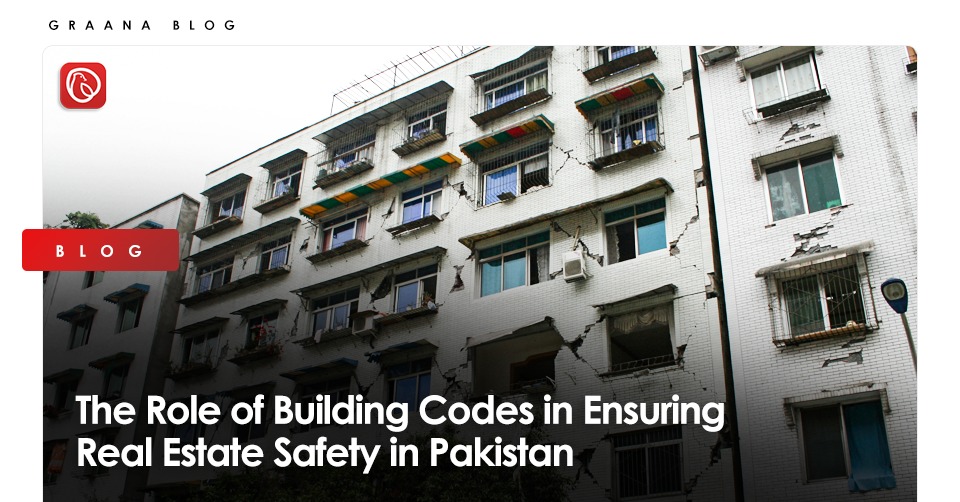Have you experienced earthquake jolts in the recent past? Did you ever stop to consider the safety of the buildings you occupy on a daily basis? Whether it’s your home, workplace, or favourite shopping mall, it’s easy to take for granted that these structures are built to withstand the forces of nature with effective building codes in practice.
However, the reality is that not all buildings are created equal. Without proper building codes in place, even minor seismic activity can lead to catastrophic structural failure, resulting in loss of life, injuries, and significant damage to property.
The Urgency of Building Codes in Pakistan
In the past two years alone, the world has experienced a staggering number of earthquakes, causing widespread devastation and loss of life. According to the National Earthquake Information Center, approximately 12,000 to 14,000 earthquakes are recorded every year. Some of these tremors claim the lives and properties of thousands of people!
Even Pakistan, a country located in an earthquake-prone region, has not been spared from the destructive impact of earthquakes. The magnitude 6.5 event that occurred on March 21, 2023, has left about 200 people injured and several dead in Pakistan and Afghanistan.
It has made one wonder about the importance of building control regulations and their compliance to ensure a safe place for people to live in.
Why are Building Codes Important?
Building codes are an essential component of any structure, ensuring that the building can withstand external forces such as earthquakes, high winds, and other natural disasters.
These codes encompass a wide range of factors, from the quality of the building materials used to the design of the building itself to the regular maintenance and inspection of the building’s structural integrity.
The importance of effective building codes cannot be overstated, as they are the key to ensuring the safety of occupants and the longevity of the building.
In Pakistan, building control is more than just a necessity; it’s a matter of life and death. Every year, we witness heartbreaking incidents of buildings collapsing, claiming the lives of innocent people.
Building code compliance is a necessary measure that ensures that real estate developers abide by the laws and regulations and construct buildings that are safe and secure. They are resistant to earthquakes and are strong enough to withstand the other forces of nature.
Benefits of Building Codes
Building codes are essential features in the real estate industry, offering a range of benefits to property owners, managers, and tenants. One major advantage of building codes is their ability to improve energy efficiency, resulting in significant cost savings.
Research has shown that building automation systems can reduce energy consumption by 10-15% and provide a return on investment (ROI) within 1-2 years (Ramaswamy, 2020).
Moreover, building codes can optimize energy usage by automatically adjusting lighting and temperature settings based on occupancy and outside weather conditions. This not only reduces wasted energy but also provides a more comfortable environment for building occupants, leading to higher tenant satisfaction and productivity.
In addition to energy efficiency, building codes also contribute to improved comfort and safety in buildings. Automated temperature and humidity controls can maintain optimal indoor conditions, while proper ventilation and air quality management can prevent the buildup of pollutants and improve indoor air quality. However, these advanced controls are not common in Pakistan.
Furthermore, real-time monitoring of critical building systems can alert building managers to potential maintenance issues or safety hazards before they become major problems, allowing for timely repairs and maintenance.
Another significant benefit of building codes is their potential to reduce operating costs for building owners and managers. By optimizing energy usage, reducing maintenance costs, and extending the lifespan of equipment, building codes can help save money over time.
Building Codes in Pakistan
In the wake of the 2008 earthquake, Pakistan updated several of its building control regulations.
Some of these are listed below:
- The Punjab Development of Cities Act 1976
- The Sindh Building Control Ordinance 1979
- The Khyber Pakhtunkhwa Building Control Ordinance 1979
- The Balochistan Building Control Ordinance 1984
- The Islamabad Capital Territory Building Control Regulations 2005
- The Pakistan Engineering Council Building Code of Pakistan 2021
- The Pakistan Environmental Protection Act 1997
- The Pakistan Standards and Quality Control Authority (PSQCA) Act 1996
Read Also




